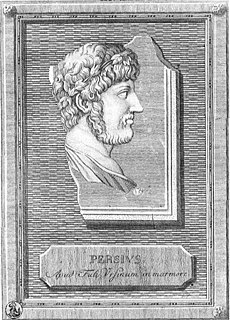A Quote by Statius
What the morrow's years might bring 'twas sin for man to know.
Related Quotes
To-morrow is that lamp upon the marsh, which a traveller never reacheth;
To-morrow, the rainbow's cup, coveted prize of ignorance;
To-morrow, the shifting anchorage, dangerous trust of manners;
To-morrow, the wrecker's beacon, wily snare of the destroyer.
Reconcile conviction with delay, and To-morrow is a fatal lie;
Frighten resolutions into action, To-morrow is a wholesome truth.
All errors are just ordinary, what extraordinary sin can you commit? All the sins have been committed already. You cannot find a new sin - it is very difficult, it is almost impossible to be original about sin. For millions of years people have committed everything that can be committed. To be thrown in hell for your sins. Now this is too much! you can throw a man into hell for five years, ten years, twenty years, fifty years. If a man has lived for seventy years you can throw him there for seventy years.and that is if you only believe in one life. It is good that they believe in one life.
I had been hungry all the years- My noon had come, to dine- I, trembling, drew the table near And touched the curious wine. 'Twas this on tables I had seen When turning, hungry, lone, I looked in windows, for the wealth I could not hope to own. I did not know the ample bread, 'Twas so unlike the crumb The birds and I had often shared In Nature's diningroom. The plenty hurt me, 'twas so new,-- Myself felt ill and odd, As berry of a mountain bush Transplanted to the road. Nor was I hungry; so I found That hunger was a way Of persons outside windows, The entering takes away.
A man who fears not God, will break all his laws with an easy conscience, but one who is the favorite of heaven, who has been indulged to sit at royal banquets, who knows the eternal love of God to him, cannot bear that there should be any evil way in him that might grieve the Spirit and bring dishonor to the name of Christ. A very little sin, as the world calls it, is a very great sin to a truly awakened Christian.






































